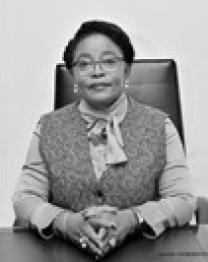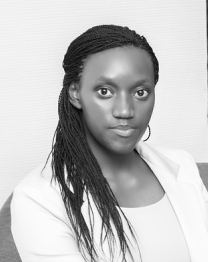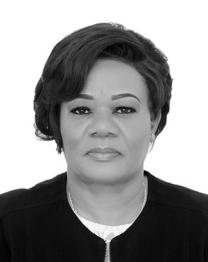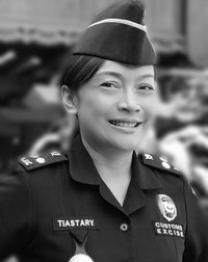How can NTFCs become promoters of gender equality in trade facilitation policies?
Or watch the entire session:
Women exporters and importers and female informal cross-border traders face significant gender-based challenges, which include time constraints, compliance costs of burdensome procedures, legal discrimination, and harassment at the border. Despite multilateral calls to address those issues and to make trade and development policies more gender responsive, including at the 2017 Buenos Aires WTO Ministerial Conference, limited progress has been made on gender equality in international trade.
At the national level, very few NTFCs have taken decisions or actions to mainstream gender into trade facilitation policies. Their membership and chairmanship remain male dominated, with limited awareness on gender issues. How can NTFCs effectively address gender-based challenges faced by women traders and better integrate a gender perspective into trade facilitation reforms?

Associée Gérante ACF et Vice-présidente nationale de la FEC en charge des femmes et jeunes Entrepreneurs Expert Comptable Agréée et Commissaire aux Comptes, Éliane est diplômée en études commerciales administratives, en comptabilité et en gestion financière. En 1992, elle crée le cabinet conseil ACF Sarl, dont elle est associée gérante. Impliquée pour la cause des femmes entrepreneures, Éliane est Formatrice Principale du programme ACCES!
Elle est également élue Vice-présidente nationale de la FEC en charge des femmes et des jeunes entrepreneurs

Chantal TUYISHIMIRE is an acting coordinator of Rwanda National Trade Facilitation Committee since July 2021 and she also serves as an AfCFTA Implementing Officer in the Ministry of Trade and Industry. She previously served as an Economist through TMEA Young Professional Program in the Ministry from 2019 to 2021. Before then She was an Executive Assistant for Mineral Trading Company called Gisande Trading Ltd

Naa Densua Aryeetey is currently the Chair of the Trade and Gender Subcommittee, of Ghana’s National Trade Facilitation Committee. She is the Vice President (Maritime) of the Chartered Institute of Logistics and Transport and the Global Advisor of the Women in Logistics and Transport (WiLAT).
She is a trained Professional in Trade Facilitation, Trade and Gender, and Trade, Investment, and Climate Change. She holds a Master of Science degree in Maritime Affairs from the World Maritime University, Malmo, Sweden, and other professional qualifications.
Naa Densua, worked with the Ghana Shippers’ Authority for almost 30 years dealing with the large, medium, and small-scale importers and exporters to bring solutions to their shipment challenges. She is the founder of the Women’s International Shipping and Trading Association (WISTA) Ghana, and a former Director of WISTA International.

Tiastary has worked in the Indonesian Customs since 1995, and has been stationed in six different Customs Offices across Indonesia in a variety of duties and positions. Over the course of that time, in between responsibilities with regard to the Harmonized System, Customs Valuation and cross border procedure, Tiastary is also active in activities that relate to the Indonesia Customs program that strives to increase work performance through gender empowerment strategies. In the last 2 years, Tiastary has been working at International Customs Affair (Directorate for International Customs and Excise Cooperation) has given her experience with working alongside her WCO colleagues across the world.
Simonetta Zarrilli is the chief of the Trade, Gender and Development Programme of the United Nations Conference on Trade and Development (UNCTAD), a programme she launched in 2010 and has been leading since. Under her leadership, the Programme provides analytical, policy and capacity-building support to member countries on the gender implications of trade policy.
Prior to leading this work area, Ms. Zarrilli worked on several trade and development related topics and carried out analytical, intergovernmental and technical cooperation activities in those areas.
Ms. Zarrilli was educated in law and international relations at the Università degli Studi di Siena in Italy, at the College of Europe in Belgium, at the Université de Strasbourg in France and at the University of Dundee in Scotland.



